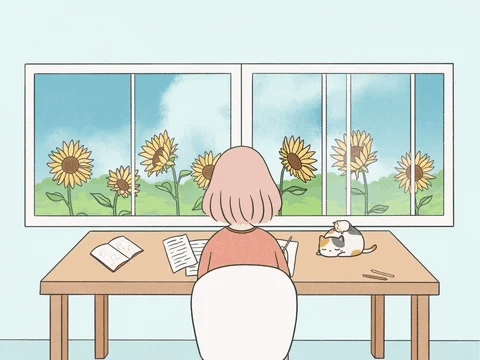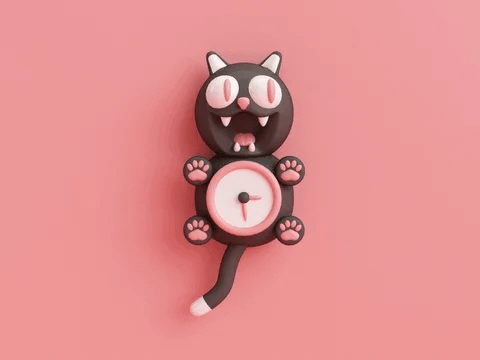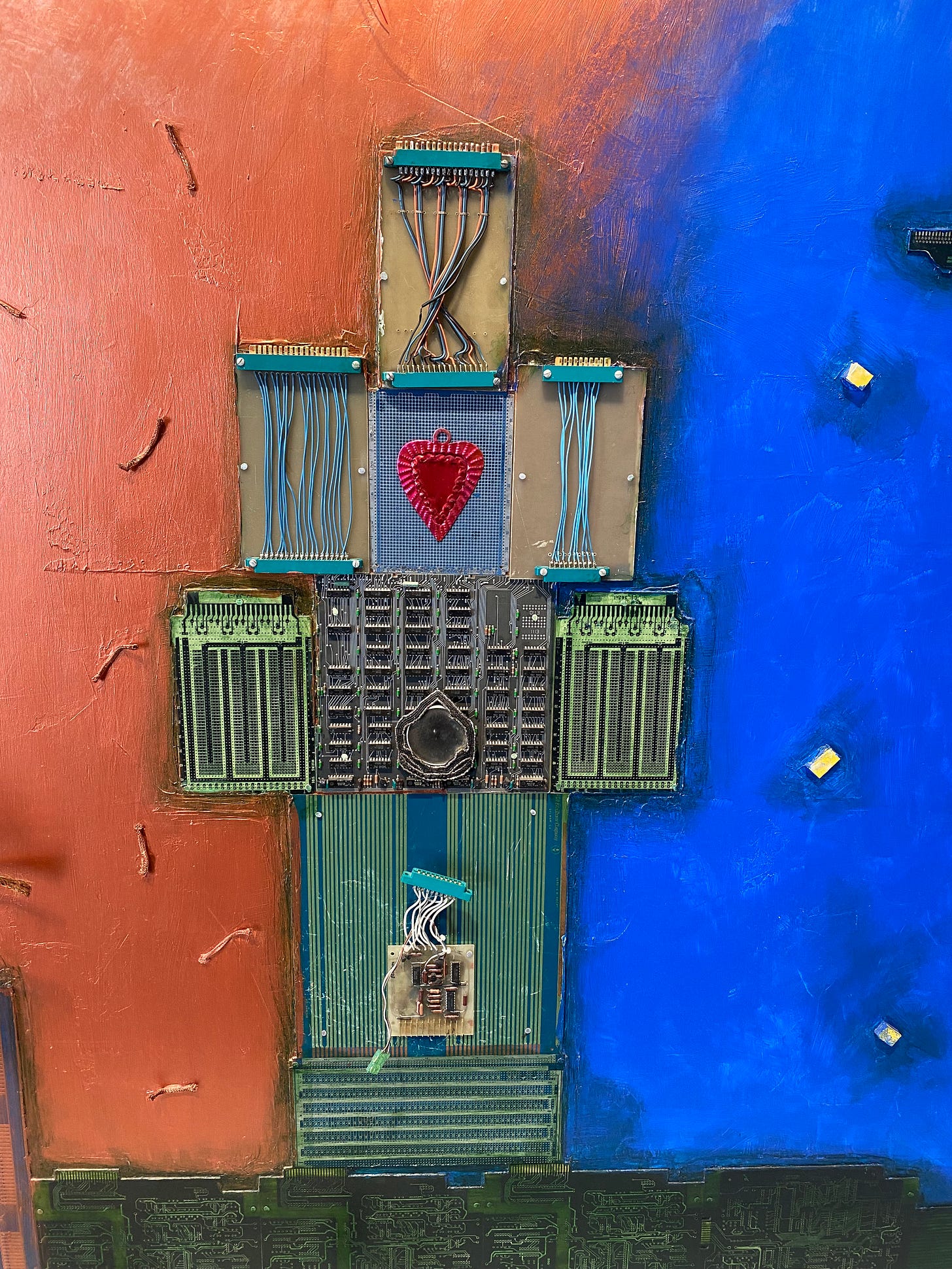How to accept where you are with a project
Let's talk about time and big projects.
Header illustration by Heather. New! New! Isn’t she pretty?
When you’re on the outside looking in, it can feel like art-related milestones happen quickly.
If you’re like me, you might have moments when you’re thinking “Wow, that person is so prolific!” or “Wow they write books so quickly” or “Wow they got another show at a gallery already!”
I’ve been thinking a lot about time and timing and timelines (thanks to some reading for a future article, and also just due to the fact that, somehow, October is almost over!!).
This newsletter is late, but the month was busy and, honestly, current events felt like too much. But if you’d like to take a little journey into art-making and the creative process with me, that’s what this newsletter is here for. I hope you read this with your favorite beverage nearby, or in a cozy spot at home.
Speaking of being things being later than expected: I had to circle back to my editor three times to let her know I needed more time to finish a big round of edits on my manuscript. As I sat in front of the computer and tried to scroll through the Word document once again—after a day of regular work things and regular life things—I suddenly thought actually, I need more time. So, I asked for it. And then I asked again. And again.
I had to accept that I just wasn’t ready. And, then, I had to accept that I needed to let some parts of the manuscript go—by which I mean, I cut one essay because I realized it just wasn’t working. It felt hard to admit, but I could also tell my heart wasn’t in it.
As I approached the end of edits, I also needed to accept the fact that the writer I am today is just that: the writer I am today. I’m not the same writer I’ll be in five years.
At some points in the process, I’ve looked back at the manuscript and looked at certain sections so much more clearly. The writer I was when I first started the book isn’t the same as present me.
That being said, I can get really critical. I read a lot, which means I read work by incredible writers. And I often think: maybe it’s just that I’m not that good. Another writer would know how to say this best.
But—I am writing and editing this manuscript to the best of my ability as the writer I am today. I can’t skip ahead to what future me might write or edit.
I accept the skill set and insights that I have today. I accept that I can’t fast-track the experience of writing a book for the first time. I can’t fast forward to being the “amazing writer who writes everything so beautifully that everyone cries when they read it on the page.”
I’ve heard many writers say they’ve been working on a book for 10 or 20 years. I had to adjust my mindset since working on the manuscript, especially as someone who is used to shorter deadlines and turnaround times in the freelance writing world.
I started earnestly working on this manuscript in 2020, which feels like a long time ago to me. And even in this latest round of edits, I was looking at comments and questions from January 2024—which, also, feels like a long time ago.
These things take time. That gallery show from an artist or that fifth book by an author or that documentary by a filmmaker—they all took time. It might look like they happened overnight but that’s rarely the case. I know we’ve all heard the stories about songwriters who write hit tracks in 5 minutes (or whatever) and writers who have amazing first drafts. But even in those scenarios, I firmly believe that all the time those artists put into their craft before that hit track or amazing book led them to that moment. Only they know how many hours, days and weeks they’ve spent working on their craft, thinking about their craft, pouring into their craft.
I recently visited Betye Saar’s exhibition at Roberts Projects and the artist was there for the opening reception. She’s 98 years old and looked happy to be chatting with the gallery director about the installation we all came to see.
I turned to my friend and art show companion (hi Sophie!) and said, “Do you ever think about what your work will look like when you’re 90-something years old? What does it feels like to have made art for that long?”
I couldn’t help but feel starstruck not only because Saar’s work is so important impact in contemporary art, but because she has been sol steadfast in her artmaking.
How cool to be in this moment and forget about the milestones or the achievements—the wants and needs that can sometimes bog me down.
What a gift that I can write to you, all, today. Ten years ago, I wasn’t the writer I am right now. And however many years in the future we want to stretch towards, I accept I don’t know that writer yet, either. Can’t wait to meet her!!
Keep scrolling for 20 opportunities for creatives!
~~~
☕️ November Deadlines
🎨 Due 11/1: Museum of Glass 2025 Visiting Artist
✍🏼 Due 11/1: Stanford University Stegner Fellowships
🎥 Due 11/4: California Documentary Project Grants
✍🏼 Due 11/4: Northern California Writers' Retreat 2025
🎨 Due 11/7: Clay Studio of Missoula “It’s the Little Things” Juried Show
🎨 Due 11/7: LA County Public Art Apprenticeship Program
🎨 Due 11/15: Textile Arts Center Work In Progress (WIP) Residency
✍🏼 Due 11/15: Yale Younger Poets Prize
✍🏼 Due 11/15: Brooklyn Film & Arts Festival Non-Fiction Prize
🎨 Due 11/15: Women’s Studio Workshop Artist’s Book Residency Grant
✍🏼 Due 11/30: Red Hen Press Quill (Queer) Prose Award
⛷December Deadlines
🎨 Due 12/5: ƛ̓x̣etkʷ Artist-in-Residence Program
🎨 Due 12/19: Archie Bray Foundation Resident Artist Application 2025
🎨 Due 12/31: Emerging Artist Incubator Program Spring 2025 (Sonoma County artists)
✍🏼 Due 12/31: Hollis Summers Poetry Prize
✍🏼 Due 12/31: Baton Rouge Area Foundation Ernest J. Gaines Award for Literary Excellence (African American writers)
🌟 January Deadlines
✍🏼 Due 1/2: North Carolina Writers’ Network Jacobs/Jones African American Literary Prize
✍🏼 Due 1/6: Leon Levy Center for Biography Fellowships
🎨 Due 1/10: Joshua Tree Highlands Artist Residency
✍🏼 Due 1/15: Georgia Review Prose Prize





